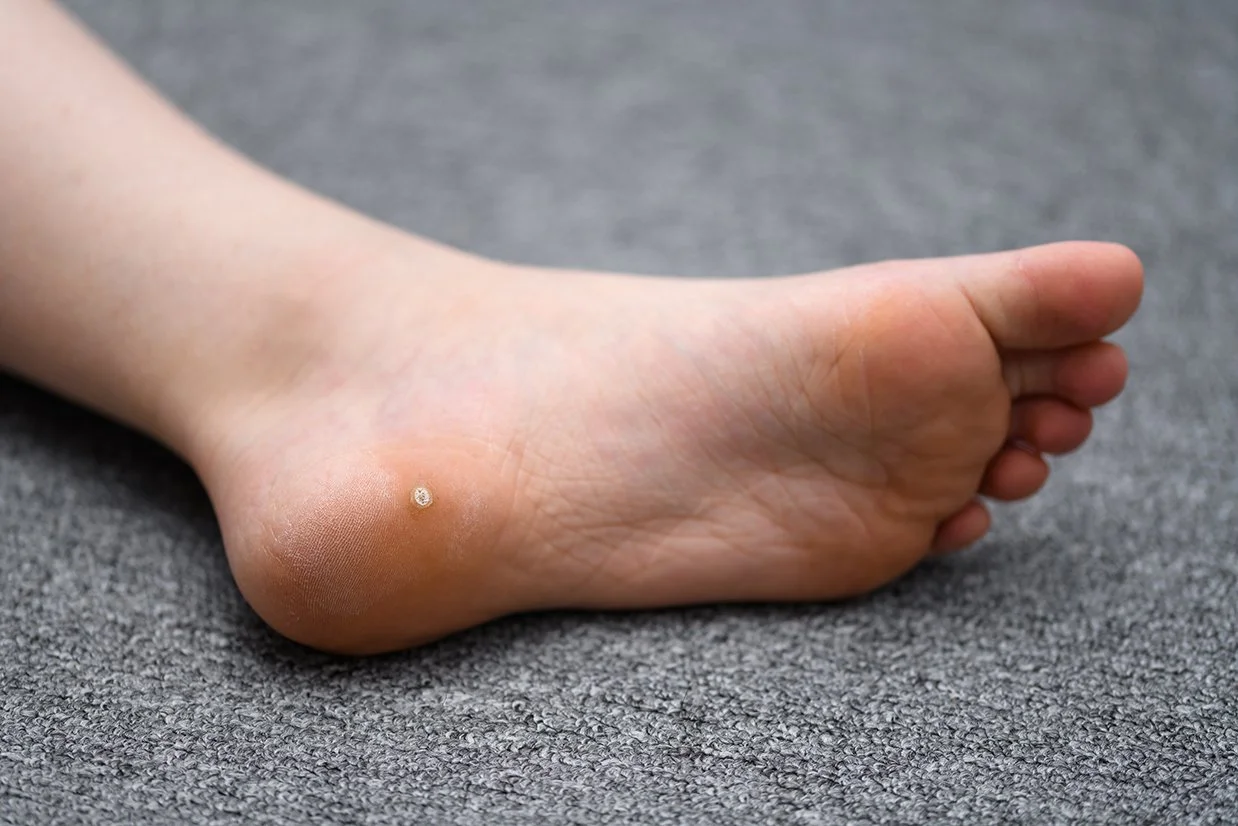Plantar Warts
Fungal nails are characterised by thickened, discoloured and/or brittle nails. They occur when a fungus comes into contact with the nail and infiltrates the nail bed. It is more commonly seen on the toenails rather than fingernails due to the warm, moist environments when wearing enclosed shoes.
Walking around barefoot in communal bathrooms in gyms and swimming centres can also contribute to disease progression. Nail salons may be another cause due to the possibility of inadequate sterilisation of their equipment.
Wearing the same shoes and socks for prolonged periods can worsen the condition by not allowing your feet to“breathe”.
If you suspect that you have a fungal nail infection, seeking help from a Podiatrist will allow for proper treatment. We can help you by identifying the contributing factors and determining the appropriate anti-fungal medication to treat the nails.
We can also aid in cutting and filing the nail back to improve the appearance and provide advice to prevent the recurrence of nail infection.
Treatment
First-line treatment for mild to moderate cases involves topical medicated treatment. However, in severely damaged nails that have been left untreated for too long, oral antifungal medication is another option for you to consider. This must be prescribed by your GP but requires a nail clipping test first and is sent to the pathology lab to confirm the presence of a fungal nail infection. We can perform this clipping test for you, which then you would return to your GP to send away for testing.
The medication is usually taken for 6 to 12 weeks but requires regular blood tests to ensure it doesn’t cause harm to your body internally, primarily your liver. Please consult with your GP first before undertaking this treatment option.


